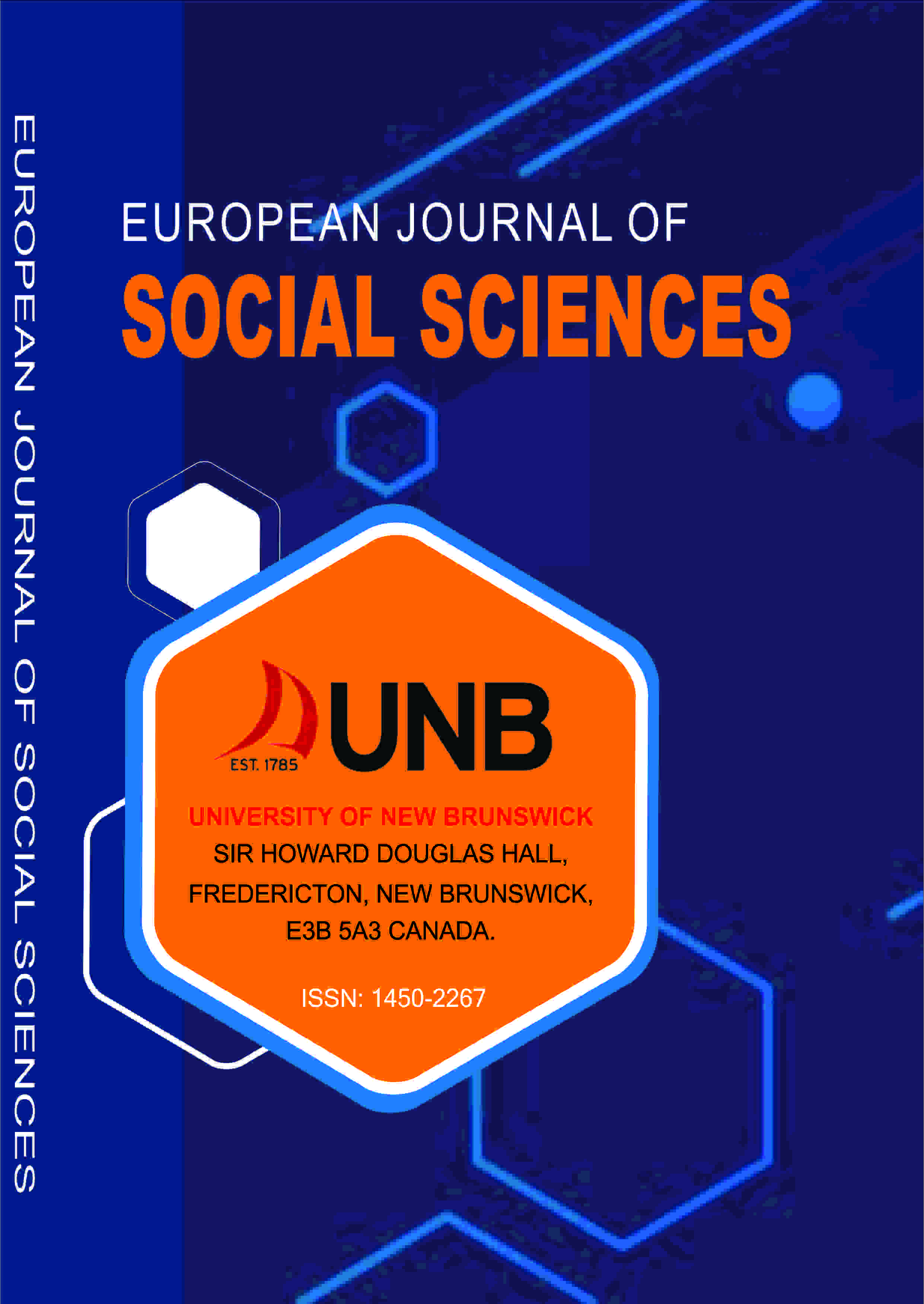EUROPEAN JOURNAL OF SOCIAL SCIENCES (EJSS)
THE SOCIO-MORAL FUNCTIONS OF AMAKAEKWU INDIGENOUS MUSIC AND DANCE ENSEMBLE OF AGULU COMMUNITY
E-ISSN: 4899-5667
P-ISSN: 1450-2267
DOI: https://iigdpublishers.com/article/417
People’s culture portrays their music, dance, talk, work, speech, and every ramification of their life in the community. Since music expresses tradition, it also enhance in the development of a particular society. Music and dance brings together people of different tradition through this, moral, social, religious, political interaction so on exist among each other. Music and dance bring people of difference race for celebration and merry making it also contribute to the development of life in the community where both united in event to produce progress and achievement. This paper focuses on evaluating the sociological & psychological impact of Amakaekwu dance ensemble of Agulu community. The method of data collection was participant observation, oral interview, and qualitative data collection. The paper discussed the Nketia’s theory which says that, “interest of man is himself and dance is part of what he does and studies about himself. And theory of Mokwunyei (2001) which agree that these cultural demands cannot outside the control and behavior of the people.
Offor Ndubuaku K. PhD
Aje, S. A. (1995). Ovia Osese maiden festival in Ogori. A meeting point of culture and religion”. Ogori: Ovia festival magazine, 1, 10-13.
Mokwunyei, J. N. (2001). Relevance of Nigeria art music in Nigerian contemporary theatre. In Omibiyi-Obidike, M. (Ed). African Art Music in Nigeria (pp.127-134). Lagos: Stiriling-Horden Publishes (Nig) Ltd.
Nketia, J. H. K. (2001). Fela Sowande’s World of Music: A memorial lecture. In Omibiyi-Obidike, M. (Ed), African Art Music in Nigeria (pp.1-15). Lagos: Stirling-Horden Publishers (Nig). Ltd.
Nketia, J. K. H. (1974). The Music of Africa. New York. W.W. Norton & Co.
Nzewi, M. (1994). Musical practice and Creativity, Bayreuth: Iwalewa Haus University.
